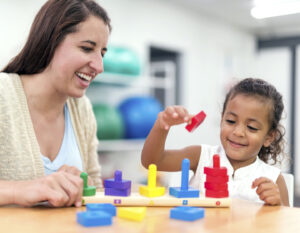







Our education expert Richard Smith addresses how to handle problematic immature behaviour in teens.
Parents and teachers often assume that as a result of a year passing, somehow everything in a child’s life has experienced a year’s worth of inner-growth and social development as well. However, after many years of working with parents of struggling adolescents, I have found that time offers no promises of childhood development and maturity.
While no two teenagers are the same, the problem of immaturity tends to emerge around a specific theme. Parents describe their immature teenager as someone who is self-centered, narcissistic, and so self-absorbed that even their friends sometimes find the behavior offensive. They report that their teen will appear not to care how their parents, siblings, or grandparents, etc. are affected. They often complain that their teen does not have any long-term goals, or plans to reach those goals. When they speak about their teenager’s friends, they say that everyone else is irrelevant until their teen needs something; that saying ‘no’, or ignoring those demands may result in tantrums and outbursts. Finally, parents report that a teenager will have no remorse for their actions; that is, the main factor driving their teen’s decision-making is more about if they are likely to get caught, rather than any sense of morality or obligation to others. While these behaviors and attitudes are completely normal for a toddler, they are all very problematic for a teenager.
If you have a teenager that fits this description, it is important to remember that their behavior is not your fault. Quite naturally, parents struggle with feeling ashamed, guilty, alone and with full of grief that other children are doing developing naturally while their child is having countless problems. In fact, many parents will report that their kid is failing at everything, even though their son or daughter is very bright. The feelings of hopelessness can become almost as problematic as the child’s immaturity. It may be useful to write down a time when things were going well so that when they change, you can have some proof (in your handwriting) that it is not always as bad as it is right now.
The best place to start is asking yourself if the problematic immature behavior was either: 1) Attention Seeking or 2) Task Avoidance. Addressing the cause is the next step to helping your child become more mature.
First, it’s important to realize that we all need recognition, and we need it at every stage of life. We need to be understood in a deep way by someone who cares for us. Children (especially teenagers) need recognition that is personally accurate, honest, positive and hopeful, and that comes from a valued relationship. A lack of recognition leaves kids feeling lost, confused, dependent, and lacking self-esteem. Recognizing the wrong things leaves them feeling ashamed, enraged, bitter, and defiant. As a rule of thumb, a kid needs, at least, five instances of positive recognition for every criticism.
Second, immature children need you to set clear limits. Kids without limits are often labeled as ‘spoiled’, and those with too may limits become defiant. So, in a way, limits are a form of personal recognition. Kids who are acting out are asking themselves: “What do I need to do to get recognized?” When you recognize your child’s needs, you are helping them answer that question. Kids may resist limits at first, so begin by giving them choices. It would not be unreasonable to tell them how they helped to invent the situation that they’re in now, but this is not a time to portion off feelings of blame.
The work is anything but easy or trivial. With all factors being equal, by helping teenagers overcome immaturity, we are improving their academic and interpersonal lives as well.
 View All
View All











 View All
View All





 View All
View All


 View All
View All










